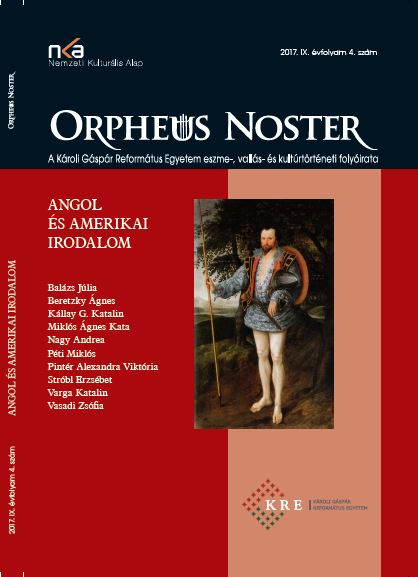Cormac McCarthy’s Unloved Child of Southern Loneliness
Cormac McCarthy’s Unloved Child of Southern Loneliness
Author(s): Júlia BalázsSubject(s): Language and Literature Studies
Published by: Károli Gáspár Református Egyetem
Keywords: Southern literature; Cormac McCarthy; Child of God; necrophilia; Lester Ballard
Summary/Abstract: My research concentrates on the necrophilic characteristics of the literature of the American South through the works of William Faulkner and Cormac McCarthy. There is a certain preoccupation with a dead but unburied, sometimes paralyzing Southern past that pervades the literary consciousness of the South, and may be seen as a form of symbolic necrophilia. The motif of necrophilia, explicitly treated or presented through subtle implications, can be observed both in Faulkner’s and Cormac McCarthy’s writings. This essay focuses on Cormac McCarthy’s third novel, Child of God, where the theme of necrophilia is very directly treated. Unlike in Faulkner’s works, here necrophilia does not signify the characters’ hopeless fixation on an outdated Southern order and on the diminishing traditions of the past. In Child of God, McCarthy’s describes how an ever-deepening social loneliness, desperate yearning for love and human companionship eventually drives the novel’s hero into necrophilia and into carrying out the most brutal and perverse act of violence. In order to explain the protagonist’s acts and motives, my essay explores the role of a community’s scapegoating and marginalizing mechanisms in forcing someone to exist outside society’s normative context, and in turning him into a cold-blooded, necrophilic criminal.
Journal: Orpheus Noster. A KRE Eszme-, Kultúr-, és Vallástörténeti Folyóirata
- Issue Year: IX/2017
- Issue No: 4
- Page Range: 52-64
- Page Count: 13
- Language: English

